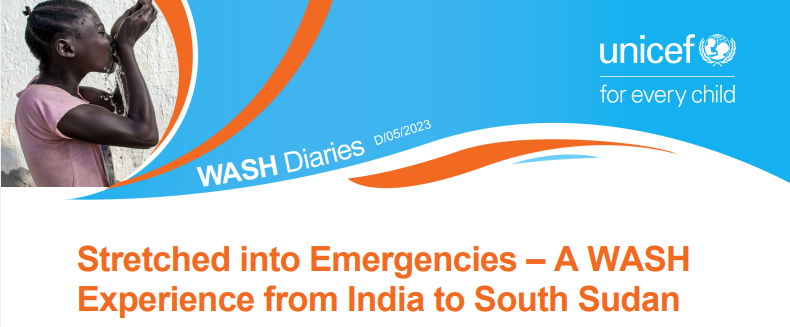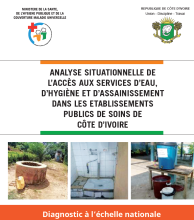WASH Diary: Stretched into Emergencies – A WASH Experience from India to South Sudan

From 23 April to 23 July 2022, I Ananya Ghoshal, a Water, Sanitation and Hygiene (WASH) officer, working in the UNICEF Office in Lucknow, India, joined the Juba South Sudan Country office as WASH Resilience Specialist (P3) on a stretch assignment. My main tasks in the Country Office included supporting the WASH Chief, collaborating closely with different section leads, and working on donor reports, support the section in National cholera planning, donor visits and mid-year review reports. This was the first time I was deputed outside my comfort zone, a non-family duty station, and gain experience in an emergency context.
The purpose of the stretch was to step in until the recruited WASH Resilience Specialist (P3) was able to come on board. Working closely with the Supply, Education, Communications, and Donor Relations Sections, the position was to support the development, preparation, management, implementation, monitoring and coordination of a multi-year Resilience programme in the WASH Section. The specialist was to be responsible for promoting public visibility of results, as well as broader partnership-building and communication with various donors like the Korea International Cooperation Agency (KOICA), the government of Korea, German donors and other key stakeholders.
The aim of the WASH resilience programing is to support sustainable service provision as part of the humanitarian development nexus to strengthen the resilience of people, communities, and systems. The stretch assignment's objective included to strengthen WASH resilience into programming (existing and new), including to focus on sustainable urban and rural WASH services delivery; government and stakeholder capacity building; sustainable school WASH facilities; supply chain improvement; and private sector engagement.
Within this framework I benefited from opportunities like, i) attending “Impact assessment” study and inserting climate resilient questions, ii) contributing to the National Cholera Prevention Plan, iii) contribute to social media posts via UNICEF South Sudan's’ handle, iv) handling donor visits, v) mid-year reporting, vi) Non-Tropical Diseases planning and proposal development with the Ministry of Health, and vi) facilitating, organizing and documenting a high-level review workshop with donors, partners and internal staff.




